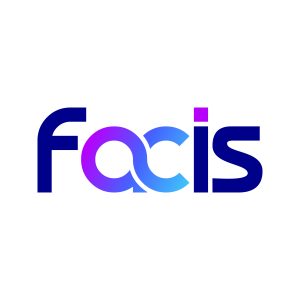Imagine a seamless journey from Budapest to Madrid in a fully autonomous car. The car navigates every twist and turn, adjusts its speed to traffic and makes real-time decisions, all powered by continuous data processing from a network of cloud and edge providers. This vision of intelligent, cross-border digital infrastructure is the overall vision of 8ra and FACIS helps to make this happen. As a transformative project within the IPCEI-CIS/8ra initiative, FACIS is paving the ground for a connected and reliable European cloud-edge ecosystem. For the duration of the project – two years – the eco Association takes on the role of project management.
As the digital transformation accelerates globally and the concept of digital ecosystems rises, the demand for robust, interoperable and decentralized digital infrastructure has never been more urgent. Traditional cloud solutions often fall short in delivering the tailored services that modern applications and use cases require. 8ra addresses these challenges by envisioning a federated and resilient infrastructure, close to the consumer and designed to meet specialised demands especially in cross-border cloud-edge environments. “With 8ra, we are not just enhancing technology – we are accelerating Europe´s digital transformation by fostering collaboration among European organisations and jointly driving innovation”, says Emma Wehrwein, Project Lead of FACIS.
Tackling Fragmentation in Europe’s Digital Landscape
FACIS (Federation Architecture for Composed Infrastructure Services), funded by the German Ministry of Economics and Climate Action, is contributing to this vision by enhancing the way organisations and providers collaborate, enabling innovative solutions for federated digital ecosystems while strengthening European digital value proposition.
Resolving fragmentation in Europe’s digital landscape is at the core of FACIS’s contributions. By leveraging technologies like Federation Architecture Patterns (FAPs), machine-readable Service Level Agreements (SLAs), and low-code orchestration platforms, FACIS ensures that multi-provider infrastructures can operate as a cohesive, scalable and secure ecosystem. These solutions are bolstered by open-source innovation and robust governance frameworks, fostering transparency and inclusivity across Europe’s cloud-edge landscape.
Strengthening Governance and Trust in Federated Ecosystems
One of the cornerstone deliverables of FACIS is the SLA Governance Framework, which provides the rules and mechanisms for seamless cooperation among service providers. The framework establishes machine-readable SLAs to ensure consistent performance, security, and accountability. For example, it sets the contractual baseline for uninterrupted service handovers between providers, guaranteeing service provision for critical applications like autonomous driving with low latency and high uptime requirements.
FACIS also develops a Digital Contracting Service as Free and Open-Source Software, aligned with the European Digital Identity (EUDI) to build trust and remediate legal uncertainty.
This approach combines multi-provider SLA with joint governance, which is essential for enabling seamless service guarantees across multiple service providers. For example, as an autonomous vehicle crosses borders, the SLA Governance Framework ensures that performance standards, such as sub-10-millisecond latency or 99.99% uptime, are consistently agreed upon. At the same time, digital contracting mechanisms ensure that the underlying agreements between providers are secure, legally binding and aligned with Europe’s regulatory framework. Together, these tools create an environment where innovation can thrive without compromising trust or reliability.
Driving Interoperability with Federation Architecture Patterns
In addition to governance, FACIS is advancing the design of federated digital ecosystems through Federation Architecture Patterns (FAPs). These extend traditional Enterprise Architecture Patterns (EAPs) by introducing specific solutions for federated environments such as participant onboarding. FAPs will be designed for seamless interoperability across services like compute, data, identity and trust, offering a blueprint for creating collaborative, scalable systems. By publishing these patterns as open-source components, FACIS encourages community-driven development and widespread adoption, further strengthening Europe’s digital ecosystem. “The introduction of FAPs as Free and Open Source is a game-changer for Europe’s digital landscape,” notes Lauresha Toska, FACIS Technical Lead. “By providing standardised, reusable blueprints, we enable businesses and organisations to deploy interoperable, federated services faster and more efficiently.”
Empowering Europe´s Digital Future
FACIS’s innovative deliverables collectively serve the overarching mission: creating a unified, scalable, and sovereign multi-provider cloud-edge continuum. “By addressing fragmentation and enabling seamless collaboration between diverse providers, FACIS strengthens Europe’s digital infrastructure while reducing reliance on non-European technologies”, Wehrwein states.
These contributions have far-reaching implications beyond autonomous driving. In sectors like healthcare, manufacturing and smart cities, FACIS’s frameworks and components provide the foundation for secure, efficient and interoperable systems. By combining technical innovation with a commitment to open-source collaboration, FACIS ensures that Europe’s digital future is inclusive, transparent, and resilient.
About eco’s role in FACIS
The eco Association is responsible for project management, focusing on management, procedural execution and the involvement of relevant stakeholders and the European infrastructure community. While technical implementation and commercial development are managed by the community and its partners, eco focuses on creating organisational frameworks.
More information about FACIS: www.facis.eu




